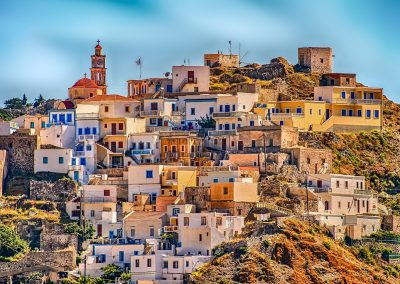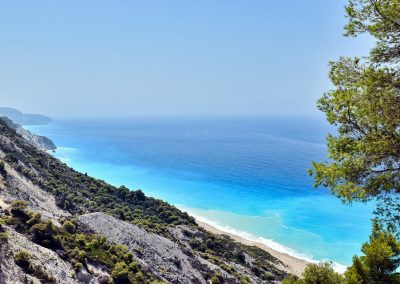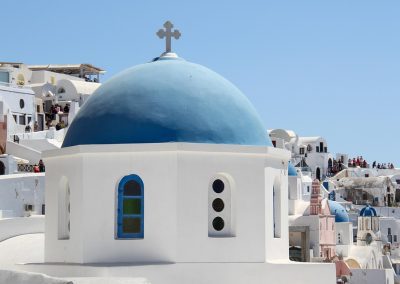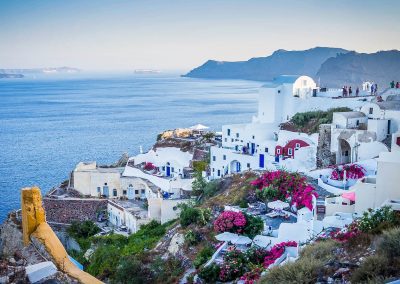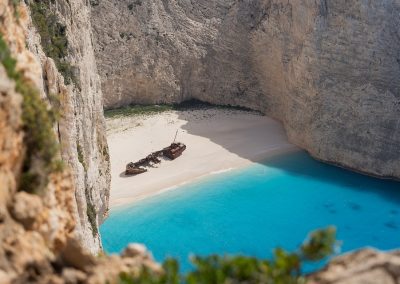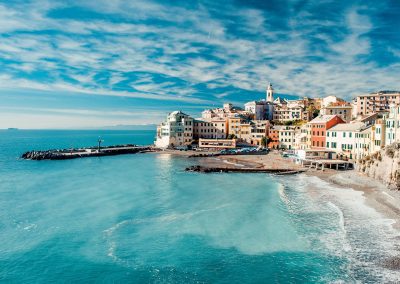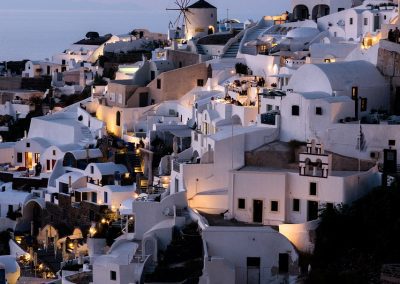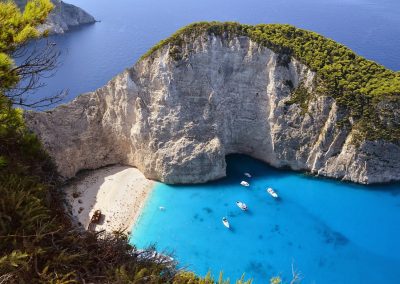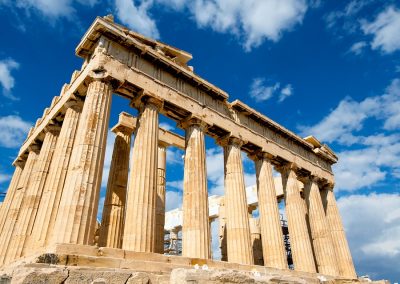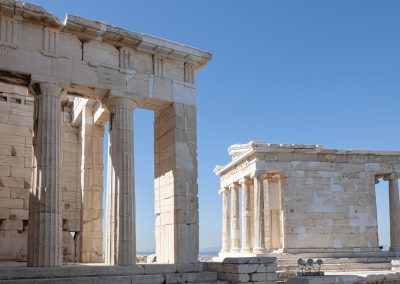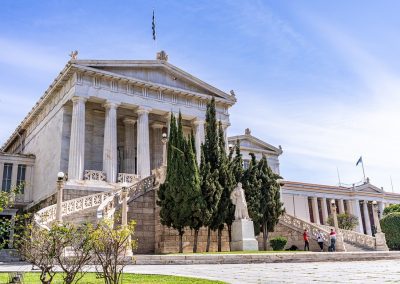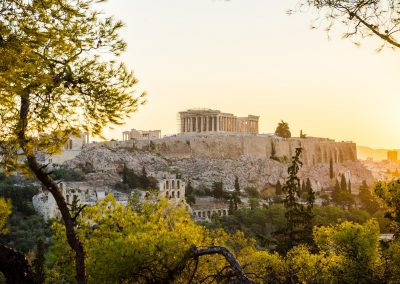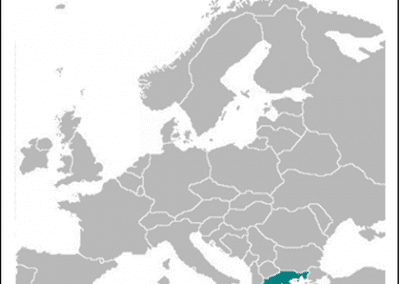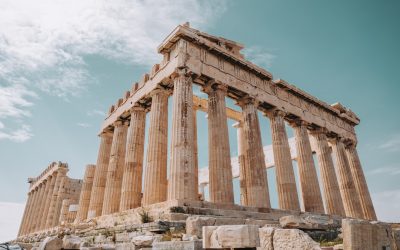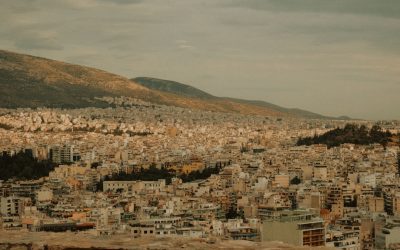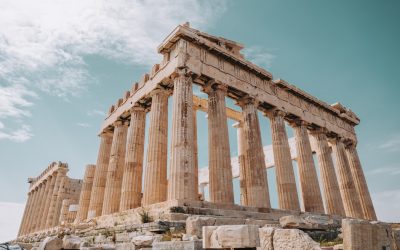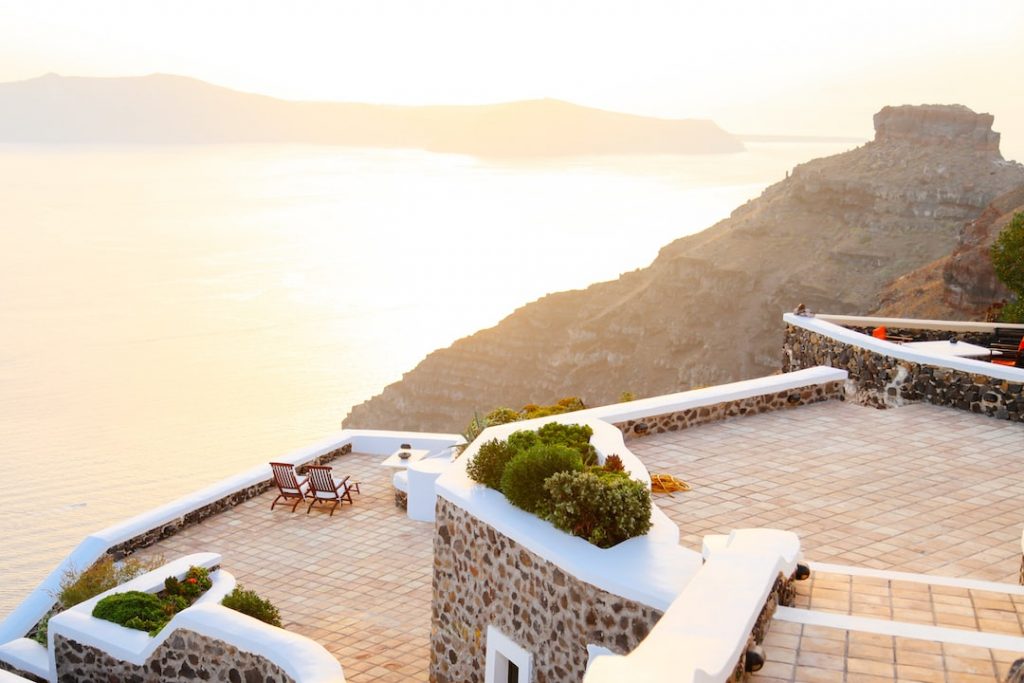Greece
(Ellinikí Dhimokratía (Hellenic Republic))

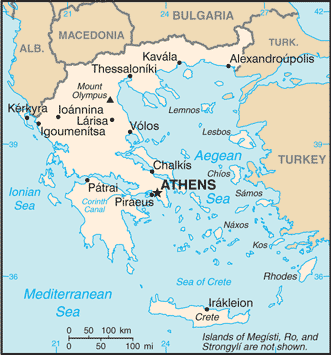
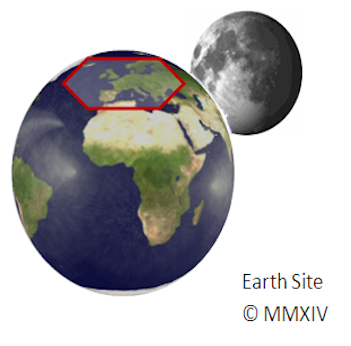
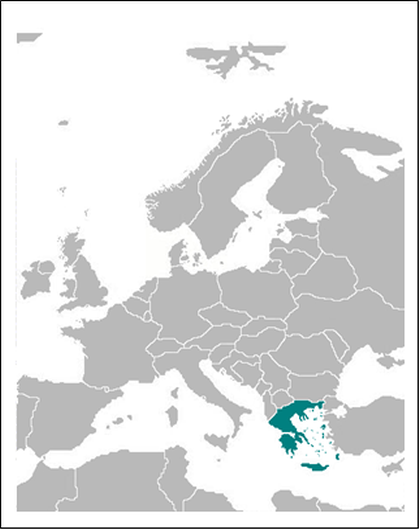
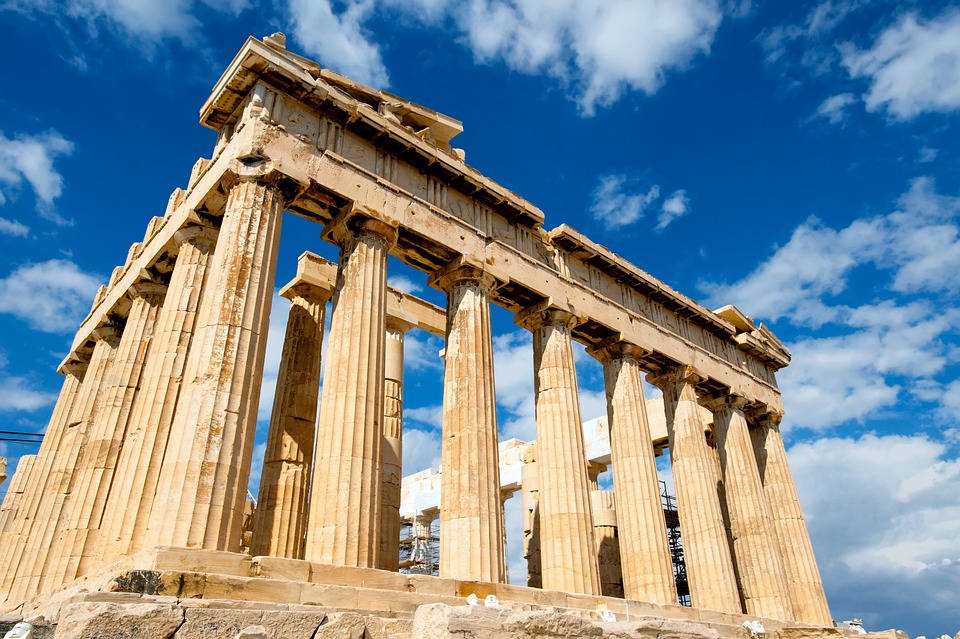
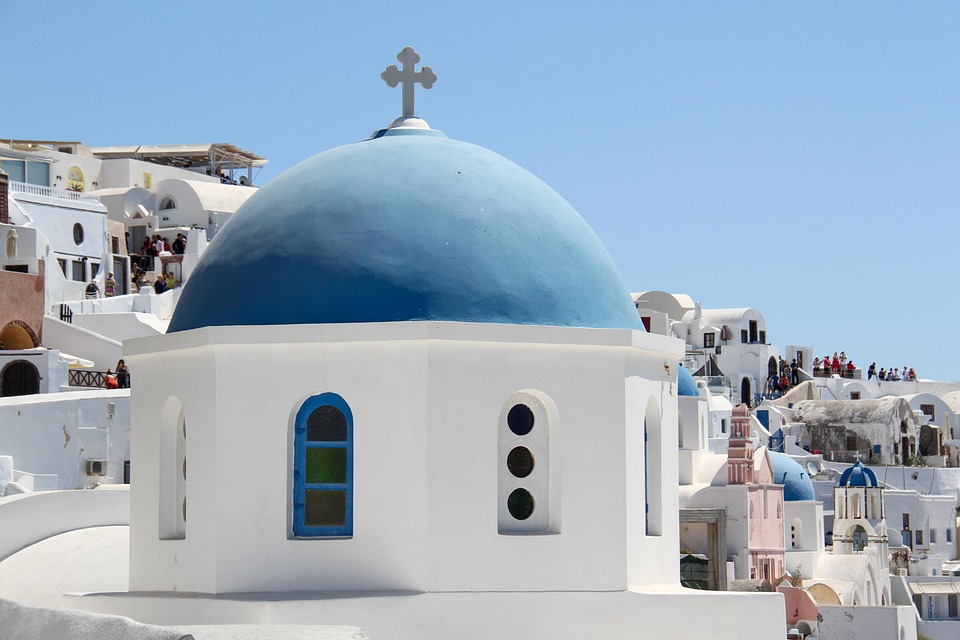
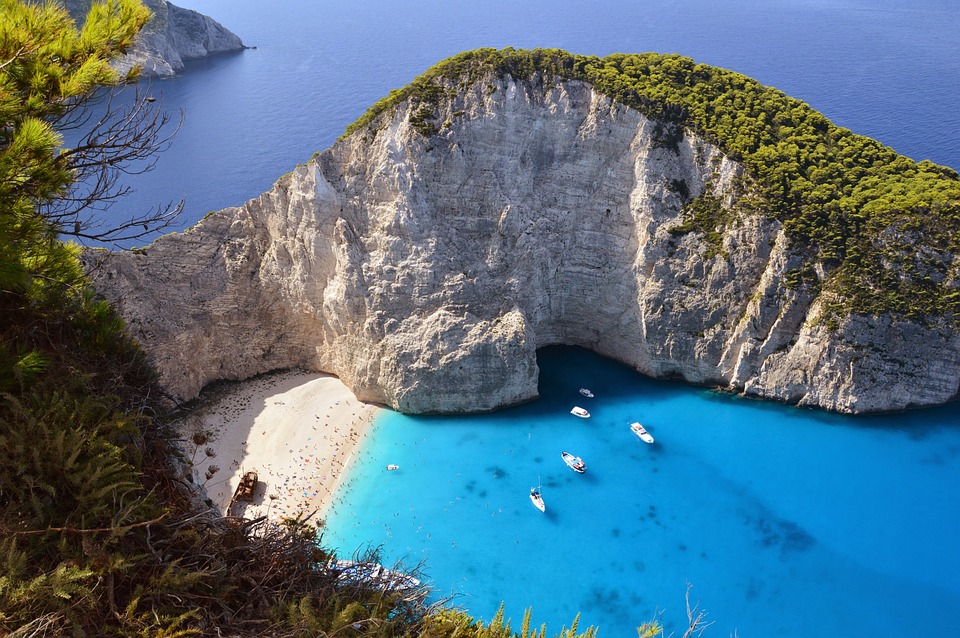
Capital: Pago Pago
Population (Estimated July 2012): 68,061
Area: 200km2 or 77mi2
Currency: United States Dollar (U.S.$)
Official Language: English; Samoan
Political Information: Unincorporated and unorganized territory of the US
Official Religion: No Official Religion (approximately 50% of the population is Christian Congregationalist, 20% are Roman Catholic and 30% are either protestant or have other religious beliefs)
Highest Mountain: Lata Mountain at 964m or 3162 feet
GDP Official Exchange Rate (OER is more precise at gauging a countries economic power)
(Estimated 2005): $462.2 million (US$) or (GBP)
GDP (OER) Per Capita (per member of the population estimated 2011): (US$) or (GBP)
GDP Purchasing Power Parity (PPP is good for gauging living conditions and use of resources but not as accurate as OER. This data has been calculated based on the sum value of all goods and services produced in the country valued at prices prevailing in the United States)
(Estimated 2007): $575.3 million (US$) or (GBP)
GDP (PPP) Per Capita (per member of the population estimated 2007): $8,000 (US$) or (GBP)
Time Zone (GMT/UTC): -11:00
Counties/Provinces/States: three districts and two islands at the second order; Eastern, Manu’a, Rose Island, Swains Island, Western
Sources: CIA World Fact Book, Encyclopaedia Britannica.
Greece
Greece, located in southeastern Europe, is a country known for its rich history, stunning landscapes, and vibrant culture. It is often referred to as the cradle of Western civilization, as it is the birthplace of democracy, philosophy, and the Olympic Games. The country is made up of a mainland and thousands of islands scattered throughout the Aegean and Ionian seas. The capital city, Athens, is a bustling metropolis with a mix of ancient ruins and modern architecture. The country’s diverse geography includes mountains, forests, and beautiful coastlines, making it a popular destination for tourists seeking both cultural experiences and natural beauty. With a history that spans thousands of years, Greece has left an indelible mark on the world and continues to be a fascinating and enchanting destination for travellers from all over the globe.
Greece is a country with a rich and diverse history that has shaped the world as we know it today. From the ancient civilizations of the Minoans and Mycenaeans to the powerful city-states of Athens and Sparta, Greece has played a pivotal role in the development of Western civilization. The country’s history is also marked by its conquest by the Roman Empire, the Byzantine Empire, and the Ottoman Empire, all of which have left their mark on Greek culture and traditions. In more recent history, Greece was occupied by Nazi Germany during World War II and experienced a civil war in the aftermath. Today, Greece is a member of the European Union and has a thriving economy based on tourism, shipping, and agriculture. The country’s history is a testament to its resilience and enduring spirit, making it a fascinating destination for history enthusiasts and curious travellers alike.
Summary
- Greece is a country located in southeastern Europe, known for its rich history, stunning landscapes, and delicious cuisine.
- The history of Greece dates back thousands of years, with a legacy of influential philosophers, artists, and leaders.
- Greek culture is deeply rooted in traditions such as music, dance, and religious festivals, reflecting the country’s diverse influences.
- Famous landmarks in Greece include the Acropolis, Parthenon, and ancient ruins like Delphi and Olympia.
- Greek cuisine is renowned for its use of fresh ingredients, olive oil, and Mediterranean flavours, with dishes like moussaka, souvlaki, and baklava being popular choices.
History of Greece
The history of Greece dates back thousands of years to the time of the ancient civilizations that flourished in the region. The Minoan civilization, which existed on the island of Crete around 2000 BC, is known for its advanced architecture, art, and maritime trade. The Mycenaean civilization followed, with its impressive palaces and fortresses that still stand today as a testament to their engineering prowess. The period of ancient Greece is perhaps best known for its contributions to philosophy, literature, and the arts. The city-states of Athens and Sparta were at the forefront of this cultural renaissance, producing great thinkers such as Socrates, Plato, and Aristotle. The Golden Age of Athens, under the leadership of Pericles, saw the construction of the Parthenon and other iconic structures that continue to inspire awe and admiration to this day.
Following the decline of ancient Greece, the region fell under Roman rule in 146 BC and later became part of the Byzantine Empire after the fall of Rome. The Byzantine period saw the construction of magnificent churches and the preservation of ancient Greek texts that would later inspire the Renaissance in Europe. In 1453, Greece fell to the Ottoman Empire, which ruled the region for nearly 400 years until the Greek War of Independence in 1821. This period marked a resurgence of Greek nationalism and led to the establishment of an independent Greek state in 1830. The 20th century brought both triumph and tragedy to Greece, with victories in World War II followed by a devastating civil war. Today, Greece stands as a proud and independent nation with a rich history that continues to captivate visitors from around the world.
Greek Culture and Traditions
Greek culture is steeped in tradition and has been shaped by thousands of years of history. From its ancient mythology to its modern-day customs, Greece is a country that takes pride in its heritage and celebrates it through music, dance, food, and festivals. One of the most enduring aspects of Greek culture is its mythology, which includes tales of gods and goddesses such as Zeus, Athena, and Apollo. These myths have inspired countless works of art and literature and continue to be an important part of Greek identity. Traditional Greek music is another integral part of the country’s culture, with instruments such as the bouzouki and the lyre being used to accompany lively dances such as the syrtaki and the zeibekiko.
Greek cuisine is renowned for its use of fresh ingredients such as olive oil, vegetables, seafood, and cheese. Some popular dishes include moussaka, a layered casserole with eggplant and minced meat; souvlaki, skewered meat often served with pita bread; and baklava, a sweet pastry made with layers of filo dough, nuts, and honey. Greeks also have a strong tradition of hospitality and socializing, with gatherings often centered around food and drink. Festivals such as Easter and Carnival are important events in Greek culture, featuring parades, music, dancing, and feasting. These traditions are a reflection of the warmth and conviviality that are hallmarks of Greek society.
Famous Landmarks in Greece
Greece is home to some of the most iconic landmarks in the world, many of which date back to ancient times. The Acropolis in Athens is perhaps the most famous of these landmarks, with its stunning Parthenon temple dedicated to the goddess Athena. The Acropolis is a UNESCO World Heritage site and offers breathtaking views of the city below. Another must-see destination is Delphi, an ancient sanctuary dedicated to the god Apollo that was once considered the centre of the world by the ancient Greeks. The site includes the Temple of Apollo, an amphitheatre, and the Tholos of Delphi.
The island of Crete is home to the Palace of Knossos, a sprawling complex that was once the center of Minoan civilization. The palace features intricate frescoes depicting scenes from daily life as well as mythological creatures such as the Minotaur. In northern Greece, visitors can explore the monasteries of Meteora, perched atop towering rock formations that provide stunning panoramic views. These monasteries were built by monks seeking solitude and spiritual enlightenment and are now a popular tourist attraction. The ancient theatre of Epidaurus is another remarkable site, known for its exceptional acoustics that allow even a whisper to be heard from the stage to the top row of seats. These landmarks are just a few examples of the rich cultural heritage that Greece has to offer.
Greek Cuisine and Food
Greek cuisine is renowned for its fresh ingredients, bold flavours, and healthy Mediterranean diet. Olive oil is a staple in Greek cooking and is used liberally in dishes such as salads, soups, and grilled meats. Vegetables play a prominent role in Greek cuisine, with classics such as moussaka (a layered casserole with eggplant), spanakopita (spinach pie), and gemista (stuffed vegetables) showcasing the diversity and versatility of Greek produce. Seafood is also abundant in Greece thanks to its extensive coastline, with dishes like grilled octopus, fried calamari, and seafood risotto being popular choices.
Meat lovers will find plenty to enjoy in Greek cuisine as well, with dishes such as souvlaki (skewered meat), gyros (rotisserie meat), and stifado (beef stew) offering hearty and satisfying options. Cheese is another integral part of Greek cuisine, with feta being perhaps the most famous variety. Feta is used in salads, and pastries, and as a topping for grilled meats, adding a tangy richness to dishes. For those with a sweet tooth, Greek desserts are not to be missed. Baklava, a pastry made with layers of filo dough, nuts, and honey, is a popular choice, as are loukoumades (honey-soaked doughnuts) and galaktoboureko (custard-filled pastry). Whether you’re dining at a seaside taverna or exploring the bustling markets of Athens, Greek cuisine offers something for everyone to savour.
Greek Islands
The Greek islands are renowned for their stunning beauty, crystal-clear waters, and charming villages that offer a glimpse into traditional island life. With over 6,000 islands scattered throughout the Aegean and Ionian seas, there is no shortage of options for travellers seeking sun-drenched beaches or cultural experiences. Santorini is perhaps the most famous of the Greek islands, known for its dramatic cliffs, whitewashed buildings with blue domes, and breathtaking sunsets over the caldera. Mykonos is another popular destination known for its vibrant nightlife, picturesque windmills, and beautiful beaches.
For those seeking tranquillity and natural beauty, the island of Corfu offers lush landscapes dotted with olive groves and cypress trees as well as charming villages with Venetian architecture. Crete is the largest of the Greek islands and offers a diverse range of experiences including archaeological sites such as Knossos, stunning beaches like Elafonissi with its pink sand, and traditional mountain villages where time seems to stand still. The islands of Rhodes and Kos are known for their medieval architecture and ancient ruins left behind by past civilizations. Whether you’re looking for relaxation or adventure, the Greek islands offer something for every type of traveller.
Tourism in Greece
Tourism is a vital part of Greece’s economy and has been a major industry for decades thanks to its rich history, stunning landscapes, and warm hospitality. Visitors flock to Greece to explore ancient ruins such as the Acropolis in Athens or the Palace of Knossos in Crete; to relax on beautiful beaches like Navagio Beach on Zakynthos or Balos Beach on Crete; or to experience traditional Greek culture through music festivals or local tavernas serving authentic cuisine.
The country’s diverse geography also makes it an ideal destination for outdoor enthusiasts who can hike through gorges in Crete or go sailing around the Cyclades islands. With its mild climate throughout much of the year and warm summers perfect for beach holidays or island hopping adventures; Greece offers something for every type of traveller whether they’re seeking relaxation or adventure.
In recent years there has been an increase in sustainable tourism initiatives in Greece aimed at preserving natural habitats while promoting responsible travel practices such as reducing plastic waste or supporting local communities through eco-friendly accommodations or tours that showcase traditional crafts or agricultural practices.
In conclusion, Greece offers an unparalleled blend of history culture natural beauty making it an ideal destination for travellers seeking enriching experiences whether they’re exploring ancient ruins relaxing on pristine beaches or immersing themselves in traditional Greek culture there’s something for everyone in this captivating country. Whether you’re a history buff, a nature lover, or a food enthusiast, Greece has something to offer. The ancient ruins and archaeological sites provide a glimpse into the country’s rich history, while the stunning beaches and crystal-clear waters offer a perfect setting for relaxation and water activities. Additionally, the traditional Greek culture, with its delicious cuisine, lively music, and warm hospitality, provides a truly immersive experience for travellers. With its diverse offerings, Greece is sure to captivate and enchant anyone who visits.
FAQs
What is the capital of Greece?
The capital of Greece is Athens.
What is the population of Greece?
As of 2021, the population of Greece is estimated to be around 10.4 million people.
What is the official language of Greece?
The official language of Greece is Greek.
What is the currency used in Greece?
The currency used in Greece is the Euro (EUR).
What are some popular tourist attractions in Greece?
Some popular tourist attractions in Greece include the Acropolis of Athens, Santorini, Mykonos, the Parthenon, and the ancient city of Delphi.
What is the climate like in Greece?
Greece has a Mediterranean climate, with hot, dry summers and mild, wet winters.
What are some traditional Greek dishes?
Some traditional Greek dishes include moussaka, souvlaki, tzatziki, spanakopita, and baklava.
What are some famous Greek philosophers and thinkers?
Some famous Greek philosophers and thinkers include Socrates, Plato, Aristotle, and Pythagoras.
What are some important historical sites in Greece?
Some important historical sites in Greece include the ancient city of Olympia, the Temple of Apollo at Delphi, and the Palace of Knossos on the island of Crete.
Climate Zones of Greece: Different climate regions Of Greece
Greece is a country located in southeastern Europe, known for its rich history, stunning landscapes, and diverse climate zones. The country is divided into several distinct climate regions, each with its own unique characteristics and weather patterns. These climate zones play a significant role in shaping the natural environment, agriculture, and overall lifestyle of the people living in these areas. Understanding the different climate zones in Greece is essential for travellers who want to explore the country and experience its diverse landscapes and weather conditions. From the Mediterranean climate region in the south to the mountainous and continental climate regions in the north, Greece offers a wide range of climates that cater to various interests and activities. Summary Greece has a diverse climate with several distinct zones, each offering unique weather patterns and landscapes. The Mediterranean climate region in Greece is characterized by hot, dry summers and mild, wet winters, making it an ideal destination for beach holidays and outdoor activities. The mountainous climate region experiences cooler temperatures and higher precipitation, making it perfect for hiking and winter sports. The continental climate region in northern Greece has hot summers and cold winters, providing a variety of outdoor activities throughout the year. The semi-arid and coastal climate regions offer warm temperatures and limited rainfall, making them popular destinations for sunbathing and water sports. Mediterranean Climate Region The Mediterranean climate region in Greece is characterised by hot, dry summers and mild, wet winters. This region covers the southern part of the country, including popular tourist destinations such as Athens, Crete, and the Peloponnese peninsula. The summers in this region are long...
Political Boundaries of Greece: Provinces, Districts, or Historical Boundaries.
Greece, a country located in southeastern Europe, is known for its rich history, stunning landscapes, and vibrant culture. The political boundaries of Greece have evolved over the centuries, shaping the country’s governance and administration. The modern political boundaries of Greece are divided into provinces and districts, each with its own unique characteristics and significance. These boundaries play a crucial role in the country’s governance, administration, and socio-economic development. Understanding the political boundaries of Greece is essential for comprehending the country’s complex administrative structure and historical context. Summary Greece is divided into 13 administrative regions, each with its own distinct political boundaries. The administrative regions are further divided into 74 regional units, which are then subdivided into 325 municipalities. The historical boundaries of Greece have evolved over time, influenced by various factors such as wars, treaties, and political changes. The comparison of provinces, districts, and historical boundaries reveals the complexity and diversity of Greece’s political landscape. The impact of political boundaries on governance and administration in Greece is a topic of ongoing debate and controversy, with various stakeholders advocating for different approaches to territorial organization. Provinces of Greece Greece is divided into 13 administrative regions, which are further subdivided into 74 regional units. These regional units are also known as provinces and are the second-level administrative divisions of the country. Each province has its own distinct geographical, cultural, and historical features, contributing to the diversity of Greece. For example, the province of Attica encompasses the vibrant city of Athens, while the province of Thessaloniki is known for its rich history and bustling port. The provinces play a crucial role in...
History of Greece
Ancient Greece is often referred to as the birthplace of Western civilization, and for good reason. It was in this small region of the world that some of the most important and influential ideas and concepts in human history were developed. The ancient Greeks made significant contributions to philosophy, politics, art, literature, mathematics, and science, laying the foundation for much of the knowledge and culture that we still value today. One of the most enduring legacies of ancient Greece is its philosophy. The ancient Greeks were the first to systematically study and question the nature of the world and the human experience. Philosophers such as Socrates, Plato, and Aristotle developed theories and ideas that continue to influence our understanding of ethics, politics, and the nature of reality. In addition to philosophy, the ancient Greeks also made significant contributions to the fields of mathematics and science. The mathematician Pythagoras, for example, developed the famous Pythagorean theorem, while the astronomer Ptolemy made important discoveries about the movement of celestial bodies. These contributions laid the groundwork for much of the scientific knowledge that we have today. In addition to their intellectual achievements, the ancient Greeks also made significant contributions to the arts. Greek art and architecture are renowned for their beauty and sophistication, and continue to inspire artists and architects around the world. The ancient Greeks also developed a rich tradition of literature, producing epic poems such as the Iliad and the Odyssey, as well as groundbreaking works of drama and comedy. The enduring legacy of ancient Greece is a testament to the enduring power of human creativity and intellect. Summary Ancient...
Terrain and Topography of Greece: mountains, valleys, and plains.
Greece is a country located in southeastern Europe, known for its rich history, stunning landscapes, and diverse terrain. The country is made up of a mainland and thousands of islands, each with its own unique topography. The terrain of Greece is characterized by its mountainous regions, beautiful valleys, and fertile plains, making it a country of great natural beauty and diversity. The topography of Greece has played a significant role in shaping the country’s history, culture, and economy, and continues to influence the lives of its people today. The mainland of Greece is dominated by mountain ranges, with the Pindus Mountains running down the center of the country and the Balkan Mountains in the north. These mountains are not only a striking feature of the landscape but also have a significant impact on the climate and vegetation of the region. The Greek islands, on the other hand, are known for their rugged coastlines, sandy beaches, and crystal-clear waters. The diverse topography of Greece provides a range of opportunities for outdoor activities such as hiking, mountain biking, and water sports, making it a popular destination for nature lovers and adventure seekers alike. Summary Greece’s terrain and topography are diverse and varied, ranging from mountains to valleys and plains. The majestic mountains of Greece, such as Mount Olympus, offer stunning natural beauty and opportunities for outdoor activities. The beautiful valleys of Greece, like the Valley of Tempe, are rich in history and provide fertile land for agriculture. The rich and fertile plains of Greece, such as Thessaly, have played a significant role in the country’s agricultural and economic development. Greece’s terrain...
Population Density of Greece
Greece, a country located in southeastern Europe, is known for its rich history, stunning landscapes, and vibrant culture. With a population of approximately 10.4 million people, Greece is a relatively small country compared to its European counterparts. However, despite its size, Greece has a relatively high population density, with an average of 81 people per square kilometer. The population density in Greece is not evenly distributed, with the majority of the population concentrated in urban areas such as Athens and Thessaloniki. This has led to various social, environmental, and infrastructural challenges that the country must address in order to ensure sustainable development and quality of life for its citizens. Summary Greece has a population density of 81 people per square kilometre, making it one of the most densely populated countries in Europe. Factors influencing population density in Greece include geographical features, historical settlement patterns, and economic opportunities. Urban areas in Greece are more densely populated than rural areas, with over 60% of the population living in urban areas. High population density in Greece puts pressure on infrastructure and services, leading to challenges in transportation, housing, and healthcare. The environmental and social implications of high population density in Greece include increased pollution, strain on natural resources, and social inequality. Factors Influencing Population Density in Greece Several factors influence the population density in Greece. One of the primary factors is the country’s topography. Greece is characterized by mountainous terrain, which limits the availability of arable land for agricultural purposes and urban development. As a result, the majority of the population is concentrated in coastal areas and valleys where the land is...
Natural Resources of Greece: Where Natural Resources are located In Greece
Greece, a country located in southeastern Europe, is known for its rich natural resources that have played a significant role in shaping its economy and culture. The diverse landscape of Greece, which includes mountains, plains, and coastline, has contributed to the abundance of natural resources found in the country. From mineral and agricultural resources to energy, water, forest, and marine resources, Greece has a wide range of natural assets that have been utilised for centuries. These resources have not only sustained the livelihoods of the Greek people but have also attracted the attention of other nations throughout history. In this article, we will explore the various natural resources found in Greece and their importance to the country’s economy and environment. Greece’s natural resources have been a source of wealth and prosperity for its people for thousands of years. The country’s strategic location at the crossroads of Europe, Asia, and Africa has made it a hub for trade and commerce, further enhancing the value of its natural resources. The ancient Greeks were known for their exploitation of the land’s resources, particularly in mining and agriculture, which allowed them to build a powerful civilization that influenced the development of Western culture. Today, Greece continues to benefit from its natural resources, which contribute to its economic growth and sustainability. As we delve into the mineral, agricultural, energy, water, forest, and marine resources of Greece, we will gain a deeper understanding of the country’s natural wealth and its impact on various aspects of Greek society. Summary Greece is rich in natural resources, including minerals, agriculture, energy, water, forests, and marine resources. The mineral...
Cultural or Historical Sites of Greece: Important Cultural Landmarks or Historical Sites In Greece
The Acropolis of Athens is a symbol of ancient Greek civilization and is one of the most famous landmarks in the world. Perched high on a rocky outcrop overlooking the city of Athens, the Acropolis is a testament to the architectural and artistic achievements of the ancient Greeks. The most famous building on the Acropolis is the Parthenon, a temple dedicated to the goddess Athena, the patron deity of Athens. The Parthenon is a masterpiece of classical architecture, with its iconic columns and intricate friezes depicting scenes from Greek mythology. The Acropolis also includes several other ancient buildings, such as the Erechtheion and the Propylaea, which are equally impressive in their design and construction. The Acropolis has a long and storied history, having been inhabited since the Neolithic period. It was during the 5th century BC, known as the Golden Age of Athens, that the most famous buildings were constructed on the Acropolis. The Parthenon, in particular, is a symbol of the power and wealth of ancient Athens, and it continues to inspire awe and admiration to this day. The Acropolis has also been a site of religious significance, with temples and sanctuaries dedicated to various gods and goddesses. Today, the Acropolis is a UNESCO World Heritage Site and attracts millions of visitors from around the world who come to marvel at its ancient splendour and learn about the history of ancient Greece. Summary The Acropolis of Athens is a symbol of ancient Greek civilization, showcasing the architectural and artistic achievements of the Golden Age of Athens. Delphi was considered the centre of the ancient world and was home...
Uncovering the Hidden Gems of Greece: A British Traveller’s Guide
Greece is a popular tourist destination known for its stunning landscapes, rich history, and vibrant culture. From the iconic ruins of Athens to the beautiful beaches of the Greek Islands, there is no shortage of attractions for visitors to explore. However, beyond the well-known tourist spots, Greece is also home to a wealth of hidden gems and off-the-beaten-path destinations that offer a unique and authentic experience. Hidden gems are those lesser-known destinations that are often overlooked by tourists but are well worth a visit. These hidden gems provide an opportunity to escape the crowds and discover a side of Greece that is less explored. Whether it’s exploring ancient ruins, hiking through breathtaking landscapes, or immersing yourself in local culture, these off-the-beaten-path destinations offer a chance to experience Greece in a whole new way. Summary Greece has many hidden gems that are off the beaten path and offer unique experiences. Exploring the authentic Greek culture and traditions is a must for anyone visiting Greece. The natural wonders of Greece, including its secret beaches and coves, are breathtaking and worth discovering. The lesser-known Greek islands offer a quieter and more authentic experience than the popular tourist destinations. Trying the lesser-known Greek foods is a must for any foodie visiting Greece. The Best Off-The-Beaten-Path Destinations in Greece 1. Meteora: Located in central Greece, Meteora is a UNESCO World Heritage site known for its monasteries perched atop towering rock formations. The monasteries were built by monks seeking solitude and spiritual enlightenment, and today they offer visitors a glimpse into this unique way of life. The dramatic landscape of Meteora is truly awe-inspiring, with...

